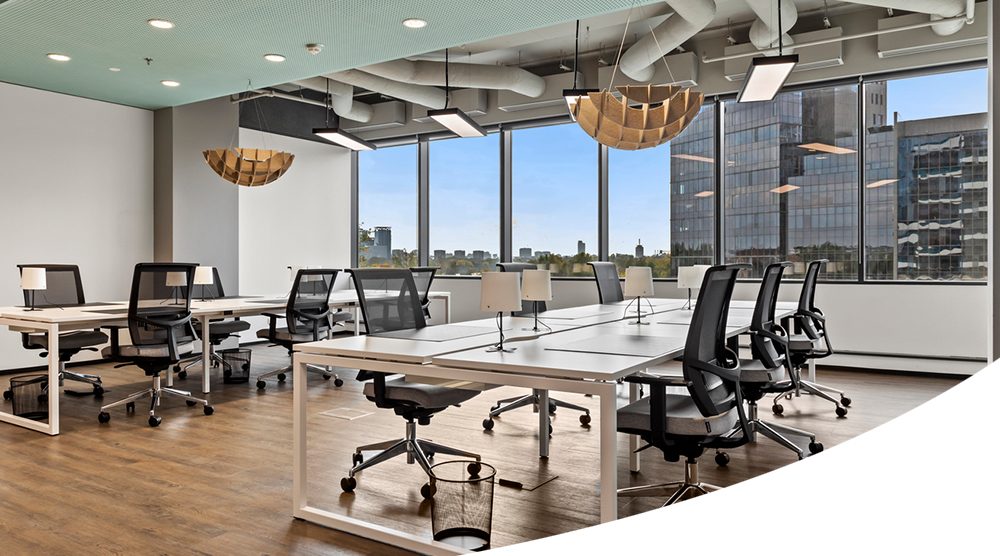Navigating the future: the evolution of serviced offices in 2024
In 2024, the workspace landscape continues to evolve. Are you curious about how serviced offices are adapting to the latest work trends, sustainability practices, and technology?
Flex offices are keeping pace with the needs for greater work flexibility, stronger community connections, and enhanced employee well-being. There’s a growing preference for serviced offices among forward-thinking businesses aiming for both innovation and operational efficiency.
Technology
The evolution of shared offices in 2024 is tech-driven – emphasizing the necessity for advanced technological integration. Modern shared workspaces are rapidly adopting smart building features, state-of-the-art security systems, and technology-enabled environments tailored to enhance efficiency and provide personalized user experiences.
This shift towards tech-centric offices caters to a growing demand for spaces that not only optimize physical space use but also ensure a secure, customizable, and efficient working environment. As these trends continue to unfold, shared offices are set to offer an increasingly sophisticated, flexible, and user-focused experience, positioning them at the forefront of the modern workplace revolution.
Community in focus
Shared offices are increasingly focusing on meeting the unique needs of different professional communities, offering spaces that are both functional and welcoming. By including comfortable work areas, opportunities for networking, and features that foster a sense of belonging, flex offices support collaboration and connection among individuals from similar industries. This approach enhances the work experience, making shared offices not just a place to work, but a place where professional relationships can flourish and grow.
Sustainability
A survey highlighted by the World Economic Forum reveals that 90% of executives believe sustainability is important, but only 60% of organizations have sustainability strategies in place. This gap underscores the growing recognition of sustainability’s role in corporate strategy, driven by a combination of environmental concerns, consumer expectations, and regulatory pressures.Shared offices are more and more open to integrate eco-friendly practices and services into their operations. In our modern world, offices are not just places to work; they’re becoming examples of how businesses can operate sustainably. Innovative flex office spaces are now designed to be energy-efficient and support the circular economy, showing a commitment to reducing environmental impact. These sustainable strategies in shared offices not only benefit the environment but also offer a healthier and more responsible workspace for everyone involved.
Optional for hybrid work
Shared offices are adapting to the needs of today’s workforce by offering setups that cater to both in-person and remote work styles. This approach allows for greater flexibility, providing spaces where individuals can choose how and where they work best. Whether it’s finding a quiet corner for focused tasks or using collaborative areas for team projects, these spaces are designed to support a variety of working preferences. In 2024, the emphasis on conscious and strategic office design is paramount, with customization options allowing spaces to meet specific brand needs. This tailored approach ensures that shared offices not only accommodate hybrid working models but also reflect and enhance the unique identity and culture of each business.
Well-being in the focus
In shared offices, employee well-being is increasingly prioritized, focusing on creating environments that boost flexibility and productivity. This approach ensures that workspaces not only meet the functional needs of their users but also support their overall health and satisfaction.
Interested in a modern workspace setup that supports ergonomics and wellness? Discover how serviced offices can help in crafting a healthy work environment.

Do not hesitate to contact us
Get in touch, if you have any question

